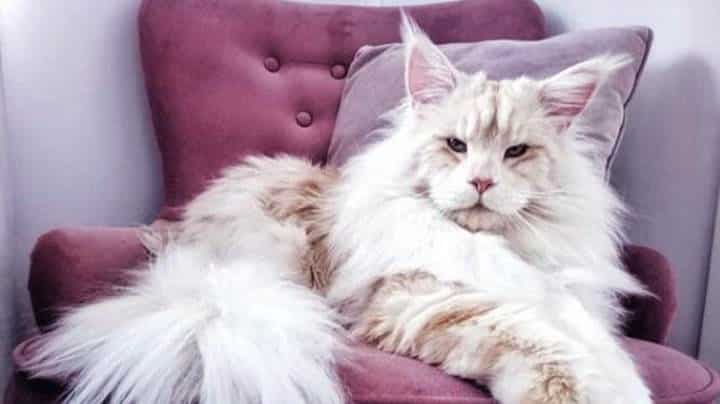Ways To Keep Your Maine Coon Cat Happy And Healthy

Getting a cat can be one of the soundest decisions one can make (as long as they don’t have allergies!). Having a cat around the house, whether they’re the clingy type or the very independent, almost snobbish type of cat, can most definitely change the atmosphere of a home. In fact, having them loitering around your home and giving companionship can help your mental health. But that’s not the only benefit one can have from cats.
Experts have found cats to be great for pest control around the home. They’re also great for those struggling, either because of insomnia or the lack of feeling of security around a home. With so many advantages these cats deliver to us, it’s only natural to treat them with enough love and care to keep them happy. If you’re a current cat owner or planning to be one, this is a list you can follow to make sure your felines are always in a good mood.
1. Maintain Your Maine’s Shiny Coat Everyday
Hairballs are one of the major problems of cats. These clumps of fur are very common to both shorthair and longhair breeds, although the latter ones, like the Maine coon cat, seem to suffer the most. Don’t get us wrong, when a cat develops a hairball that can still be considered normal. Hairballs become a huge problem, however, when the frequency and size of the clump double up. This means your cat is shedding and ingesting most of the loose hair.
Fur taken in by your cats can be hazardous in many ways, but one serious scenario happens with the intestinal tract, where the hair can be lodged and eventually cause an obstruction. Another swift and deadly incident is the clump being too large for the feline’s esophagus that it is unable to pass through. This can not only bring your cats immense pain and suffering but can block out their airway and bring them quickly to their deaths.
So, as owners, it’s a responsibility and an obligation to brush your cat’s fur every day. This will not only give them a healthy, shiny coat on the daily but prevent deadly hairballs from accumulating in their throats. We think your Maine coons will be more than happy without clumps of fur stuck in their throats.
2. Feed Them Properly And Adequately
Right off the bat, we’re here to tell you that your cats, most especially your Maine coon, are obligate carnivores. Obligate carnivores mean felines cannot survive with a plant-based diet alone. They need meat of all kinds to thrive, and more importantly, survive. Cats have no existing enzyme in their body to break down carotene from plants, which is the direct supply of Vitamin A for plant-based eaters. They get their vitamin A from the liver of their prey.
On top of that, the short-chain, unsaturated fats found in plants are deemed useless in a feline’s digestive system. Unfortunately (or fortunately), they can only synthesize long-chained unsaturated fatty acids (link: https://feline-nutrition.org/answers/answers-what-exactly-is-an-obligate-carnivore) found in other living animals. And the simplest reason for their obligatory carnivorous diet is their inherent instinct to hunt and kill. Cats may have been downsized into pets that laze around and purr for our benefit, but they’re still predators in instinct and nature.
Therefore a proper and balanced diet needs to be at hand for your cats, especially your Maine coon. Starting from dry food, which needs to be cut down drastically lest you’ll find your cat obese soon, and wet food. Wet food should be protein-based, almost 75% meat, as Main coons need it for their muscle building. Remember that this breed is one of the biggest ones out there, which requires you to double their meals.
3. Make Sure They Get Hydrated Properly
You can tell if you are both a dog owner and a cat owner that the latter drink less water than the former. This can be due to feline ancestry, which can be traced all the way to desert cats that have developed their bodies to survive with as little water as possible. However, this doesn’t mean your pet should be restricted access to freshwater. In fact, it is imperative to make sure they drink water every day.
Dehydration is common for cats, which is a thing many owners should be ashamed of. Dogs get a lot of water throughout the day because they show enthusiasm when drinking, yet cats get the opposite because you rarely see them drink some. At this point, there are two incidents your cat will be in if you deprive their water source.
One, your cat may suffer multiple organ failures because of dehydration, leading to their death. Second, felines will tend to drink from any water source, which can mean dirty water and get sick. It can still lead to their deaths. Avoid this untoward incident by providing water fountains around multiple areas in your home.
4. Make Sure You Visit The Vet Annually, Or As Needed
Unless you have a degree for it, don’t assume you know how healthy or sick your cat is. Don’t rely on google as to why your cat keeps meowing at night when they are usually docile and calm, or if they ditched the kitty litter when they pee. Both scenarios can mean your cat has a problem that needs to be addressed at once. Do not give any alternative treatments, especially if your vet didn’t give you a go signal. In conclusion, don’t DIY your cat’s treatment.